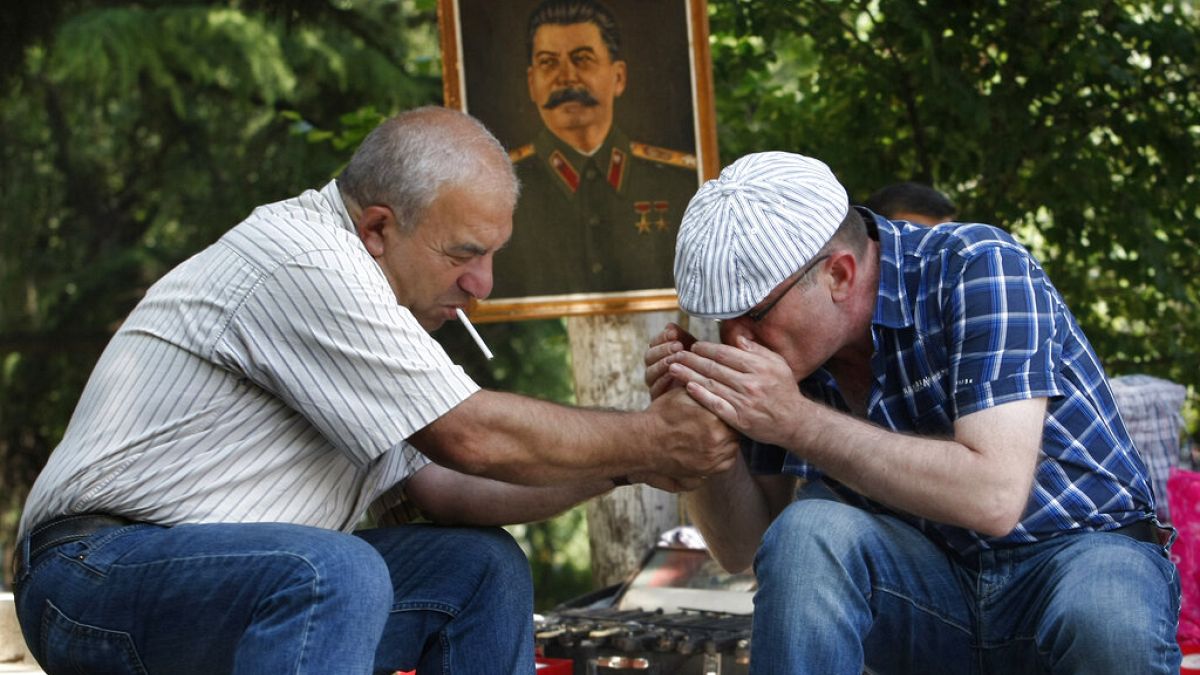Loneliness among the elderly in countries like Georgia has become a problem, made worse bz the impact of the COVID-19 pandemic.
When his wife, sons, grandchildren and friends have no time for him, 70-year-old Nodar Ghonikashvili comes to a small park in the Digomi district of Tbilisi.
It is not always easy for Ghonikashvili and many people like him to find someone to talk to who will set aside some time for him.
"The more information you have, the more you want to talk to someone about it," he said.
"At times, my grandson does not want to hear my stories. Of course, we communicate, he tends to ask me stuff from time to time […] But anyway, me and him we think differently."
"So it's better to live this way. Of course there is the sense of solitude in these moments. Everyone has their own business, everyone is busy."
There are day centres for the elderly, but many are temporarily closed due to the pandemic.
However, every day the staff at a local centre try to organise several events for about 30 senior citizens to remind them that they are not alone and that their lives are important. Ghonikashvili often takes part.
Inga Chkheidze, the social programme manager at the Tbilisi Day Centre for Elderly said, "It is not so common here for the elderly to have their own business, to learn something new at this age."
"They are kind of ashamed, asking, 'What is the use of learning? I am too old to work, too old to dress for work.'"
"Most people here prefer wearing everyday clothes," Chkheidze lamented.
Need for national policy
In 2021, the UNFPA and University College London conducted a survey in 20 Central Asian and Eastern European countries.
Those taking part in this survey were between the ages of 65 and 85, with almost 20 per cent of them saying they were experiencing severe loneliness.
According to the study, the isolation caused by the pandemic further complicated the situation.
Researchers believe that the solution to this issue should be the development of a national policy by the state, focused on protecting the rights, health and dignity of these elderly citizens.
Professor of sociology Iago Katchkatchishvili said it is common in countries like Georgia.
"The situation in the post-Soviet states [in the Caucausus] is more dramatic than in Eastern Europe. That is because social programmes for the elderly are more developed there," Katchkatchishvili explained.
"This is why we have such a difference, a difference at the level of state policy in terms of dealing with elderly."
Despite his age and loneliness, Nodar Ghonikashvili still has many dreams, and they all involve having people around him.
"I want to build a house, but I am neither young enough to do it nor do I have the opportunity."
"If I could I would have built a big house and we would have lived there together," Ghonikashvili concluded.
